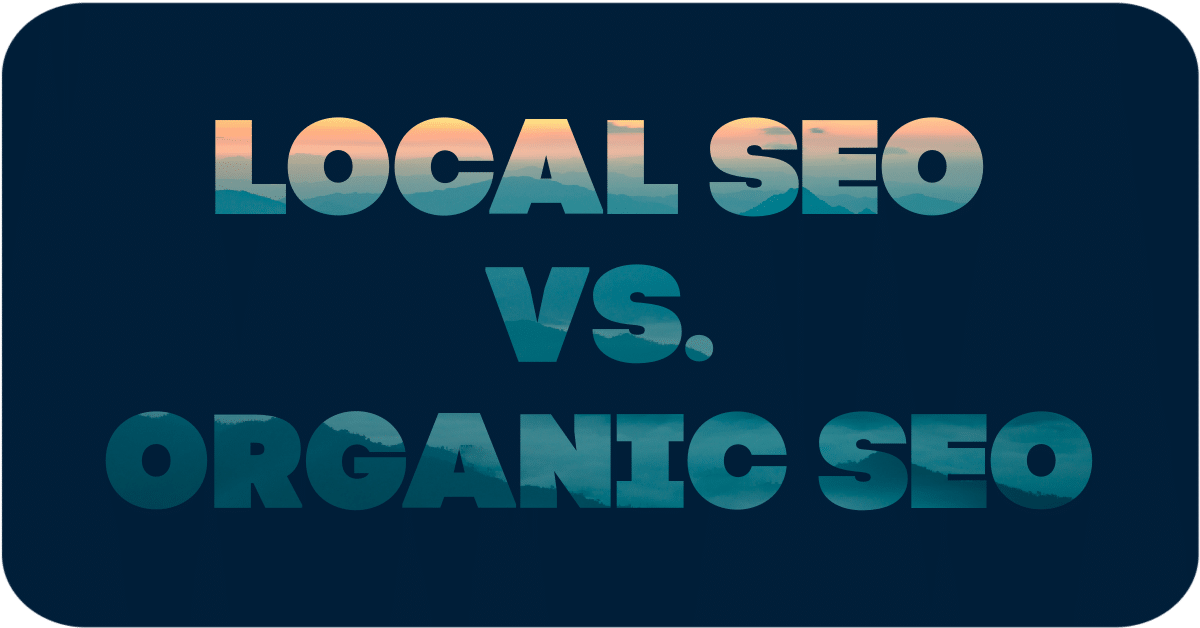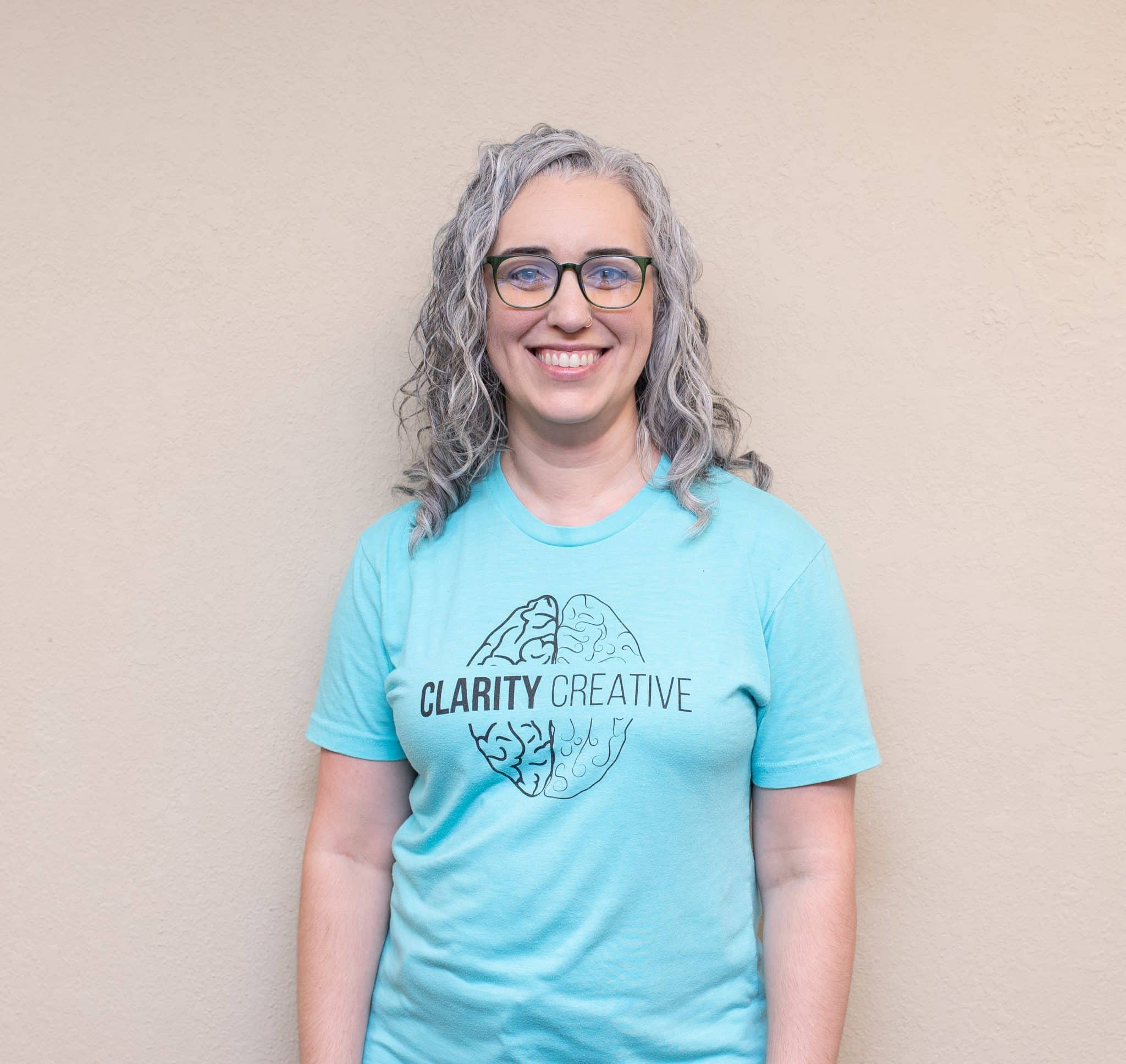We’re all looking for ways to increase traffic and sales.
Let’s take a look at local SEO vs organic SEO to see which one you need.
Whether you’ve been in business for 20 days or 20 years, whether you sell a product or a service, whether you run an e-commerce shop or a brick and mortar store, every small business owner can benefit from boosting their online presence.
And there’s no better way to do that than search engine optimization, or SEO.
The only problem? There are seemingly countless SEO strategies to choose from. Most of them, however, fall under one of two categories. In this article, we’ll look at local SEO vs organic SEO to see which one(s) you need and how you can best optimize your business.

What Is Organic SEO?
The word “organic” gets used a lot nowadays, but this has nothing to do with keeping pesticides and GMOs off your website.
When it comes to SEO, organic simply refers to web traffic that naturally came to your site by users searching on their own (as opposed to you paying for ads to lure them).
Organic SEO typically involves three main strategies.
Of the utmost importance is keyword research, which involves data about how often users search a word (or phrase) on the internet and how hard it is for them to find your site by doing so.
Once you’ve found a strong keyword contender, your next step is creating valuable website content (i.e. the text on your site), optimizing it for that keyword.
The final component is link building. This involves posting a backlink to your optimized content on another site that gets a lot of traffic.

What Is Local SEO?
While organic SEO and local SEO are different, they are not direct opposites, either.
Local SEO has the same goal as organic, but focuses its efforts on a particular geographical area. Rather than trying to attract potential customers from all over the world, you instead focus on only those people who are most likely to patronize your business.
As you can imagine, local SEO strategies are best for brick-and-mortar locations and/or businesses that can only operate within a certain area (such as lawyers and insurance agents).
While organic SEO primarily takes place on your own site, the majority of local SEO happens through other channels.
The obvious exception to this is local keyword optimization, which focuses your keyword research to a specific geographical area.
Occasionally, Google will need to have a prompt like “near me” or “in Orlando” to deliver the best results. However, its algorithm is getting better at recognizing intent without the user having to explicitly ask for it.
(In this case, the difference with local keyword research is knowing whether your customers are more likely to call it a “hoagie” or a “sub.”)
To best optimize your site for local searches, the biggest bang for your buck will be getting your site on local business listings such as Google Business Profile and Apple Business Connect.
On Google, local listings show up higher on the results pages than the organic search results, so creating and optimizing your Google Business Profile will be well worth your time.
Another thing that’s worth your time? Your customer reviews.
Nearly all online shoppers read reviews before making a purchase, so please don’t ignore this! Ask for reviews from satisfied customers and respond to the reviews they leave—yes, even the negative ones.
Say Hello, and Let's Get To Work Together
Local SEO vs Organic SEO: Which Is Better?
In short, local SEO is optional, but organic SEO isn’t.
If you only operate within a specific geographic area, you need to focus on local SEO. (Because if you’re a sub shop in Atlanta, an attorney who passed the Maryland Bar exam, or you sell ice cream in Orlando, you can’t help someone who lives in California.)
But every business can benefit from organic SEO.
If you’re just trying to get the word out, organic SEO is the biggest megaphone there is. And if you’re going the local route, all that strong content marketing can help boost you in those local search results.
Conclusion
We see the proof day after day: SEO works.
The confusing part? There’s a lot of different ways to do it and they all work. The key is finding what works best for you.
Our best advice is to start doing organic SEO…like, yesterday. If you want to focus on a local audience, serve yourself a big ol’ dollop of local SEO. And if you want a little extra boost (and you’re ready to spend a few bucks), take a peek at pay-per-click advertising.
And if you’re finding all of this too confusing and you need a little help, consider using a digital marketing agency.
At Clarity Creative Group, we eat, sleep, and breathe SEO.
Not only do we stay at the forefront of ever-changing best practices, we experiment with them all to find out what works the best and we’re proactive about getting the results you need.
Give us a call. We’d love to hear from you.







